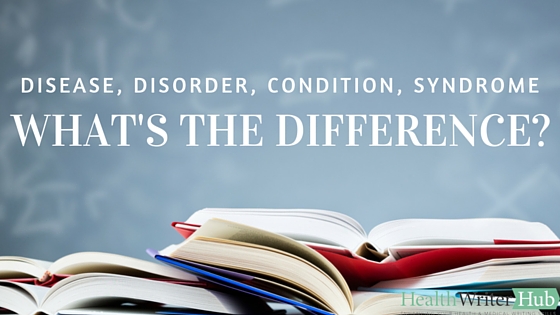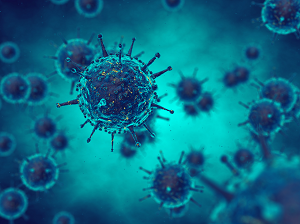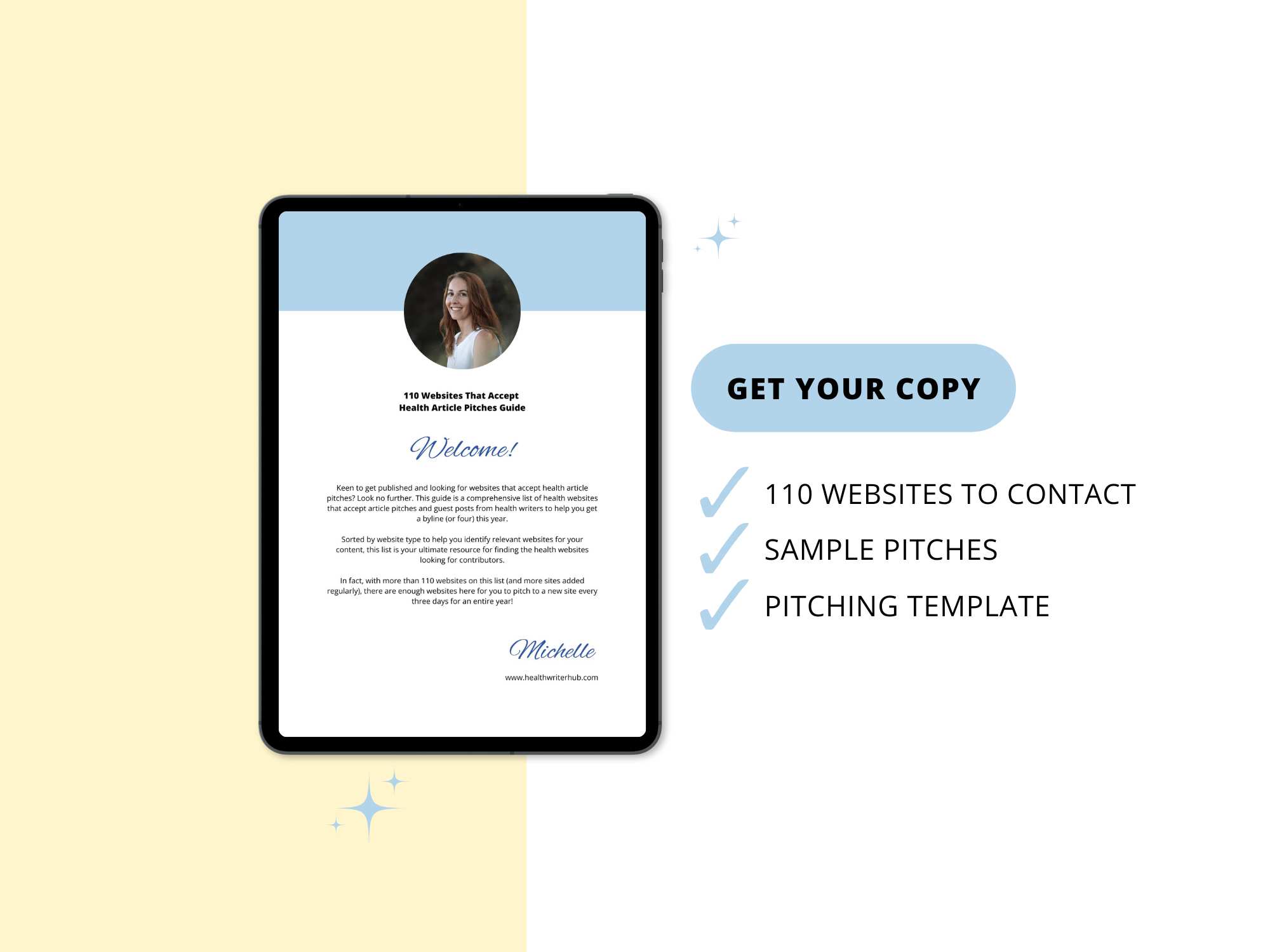 I’m sure you’re familiar with the basic concepts of diseases, disorders, syndromes and conditions.
I’m sure you’re familiar with the basic concepts of diseases, disorders, syndromes and conditions.
The terms are often used interchangeably – but they actually have different meanings.
And, for some of us – especially ESL writers looking for tips – describing what a disease is and how it differs from a disorder, syndrome or condition can be quite difficult.
So, what IS the difference?
Read on to learn how to understand and define diseases, disorders, syndromes, and conditions.
What is a disease?
One of the original definitions of a disease was published in the British Medical Journal as early as 1900.

Today, doctors treat and diagnose a disease based on abnormalities in systemic functions – for example, cardiovascular disease.
These abnormalities can cause both physical and emotional signs and symptoms, as well as pain, dysfunction, distress, social problems or death.
What is a disorder?
While doctors diagnose and treat a disease, a disorder is defined as follows.
 For example, a disorder resulting from cardiovascular disease is an arrhythmia or irregular heartbeat. An arrhythmia is not a disease itself – it’s an abnormal heartbeat that occurs as a result of having cardiovascular disease.
For example, a disorder resulting from cardiovascular disease is an arrhythmia or irregular heartbeat. An arrhythmia is not a disease itself – it’s an abnormal heartbeat that occurs as a result of having cardiovascular disease.
Disorders can be classified into the following areas:
- Mental
- Physical
- Genetic
- Emotional
- Behavioural
- Structural
What is a syndrome?
A syndrome is a term that refers to a disease or a disorder that has more than one identifying feature or symptom.
In other words, a syndrome is defined as follows:
 Down syndrome is a well-known genetic syndrome.
Down syndrome is a well-known genetic syndrome.
It is characterised by having an extra copy of chromosome 21 in combination with a number of distinctive physical features at birth.
Medical syndromes can be caused by genetic mutations or other factors.
What is a condition?
Sometimes, a syndrome can be caused by a number of diseases or it can be a medical condition itself.
 For example, chronic fatigue syndrome is a neurological condition, diagnosed from a collection of symptoms in addition to the main symptom of post-exertional malaise.
For example, chronic fatigue syndrome is a neurological condition, diagnosed from a collection of symptoms in addition to the main symptom of post-exertional malaise.
Further reading
If you need to write patient education materials or assess your writing to ensure you’re communicating about diseases, disorders, conditions and syndromes accurately, here are more resources to help.
The AMA Style Insider provided a comprehensive overview of the origins of disease, condition and disorder which you can read here.
You can also read this overview on DifferenceBetween.com and this Quora discussion if you want to investigate some other perspectives on the topic.
- A detailed list of 110 websites that accept pitches from health writers
- A description of the content each website typically publishes
- A pitching template to help you write the perfect pitch
- Sample pitches that work!
Remember:
- A disease is a pathophysiological response to internal or external factors.
- A disorder is a disruption to regular bodily structure and function.
- A syndrome is a collection of signs and symptoms associated with a specific health-related cause.
- A condition is an abnormal state of health that interferes with normal or regular feelings of wellbeing.
Do you have trouble articulating the differences between diseases, disorders, syndromes and conditions?

